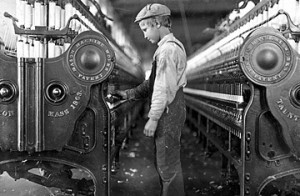Public-sector unions are the last bastion of America’s union movement that was born of the labor exploitation and abuses of the 19th century. Domestic manufacturing’s decline has contributed to a drastic drop in private-sector union membership — and with it, middle-class prosperity — and now the right is drawing a lethal bead on fast-growing public-sector unions.
Conservatives hate unions, and not just because they fight for wages, working conditions, and grievance rights. They’re also the backbone of the Democratic Party, and by destroying as many unions as possible, the right hopes to weaken the ability of Democrats to win elections. Beyond that, it’s probably not overstating the situation to say their ultimate goal is to reverse the progressive victories of the last century.
Last week, the Supreme Court took up a case engineered by rightwing lawyers expressly for the purpose of kicking the stool from under public-sector unions. By accepting this case, the Court’s conservative majority is signaling that it’s going to do what judicial activists on the conservative side of the bench have been itching to do for a long time: Rule that workers have a free speech right to not pay so-called “shop fees” or “agency fees” to unions. The practical effect of such a ruling would be to make the entire United States a “right to work” country … without any enactment by Congress.
The problem for unions is that human nature being what it is, people won’t pay for something they can get for free. Unions have many of the same expenses that businesses do — they need to pay rent on office space, pay staff salaries, buy office supplies, have phones and computers, and so on. All of this costs money. In return, union members usually get a better deal on wages, working conditions, etc. through collective bargaining than they could by negotiating individually with the employer. But why pay union dues when you can get the benefits of a union contract without paying anything?
Union and anti-union activists alike understand that making union dues voluntary — which is what “right to work” laws do — undermines unions so severely that they basically can’t exist under such conditions. But compulsory union membership clashes with individual freedom.
The 1947 Taft-Hartley Act struck a balance: You don’t have to belong to a union, but workers can choose by democratic process — i.e., majority vote — to create a “union shop” in which workers can opt out of membership in the union but have to pay a fee in lieu of union dues to the union to compensate the union for the collective bargaining and other services that the union beneficially provides to them. This arrangement is intended to prevent “free riding,” i.e. taking the benefit of union services without helping pay for them, which is unfair to workers who do pay for them.
It’s this balance that’s put at risk by the Supreme Court’s conservative justices’ activism. If, as seems likely, they come down with a ruling that workers not only can’t be required to belong to a union — a right they have now — but also can’t be required to pay “shop” or “agency” fees to a union, then “union shops” will cease to exist and, in all likelihood, unions will cease to exist.
Why now? Because some of the justices are getting old, and unless the GOP wins the 2016 presidential election — which is no slam-dunk (I would argue it’s an uphill trek against difficult odds, although not impossible) — the Court’s conservative majority could evaporate within a couple years. If a Democrat wins in 2016, not only will the Court’s aging liberal justices be replaced by liberal appointees, but there’s a high probability that at least one conservative justice also will be replaced by a liberal appointee, and that would put the Court’s conservatives in a minority — and put a nationwide, made-by-judges, unlegislated “right to work” regimen with constitutional-right status that can’t be overridden by a future Democratic-controlled Congress, out of reach.
Click here for further discussion.
 Photo: Conservatives want to reverse a century of labor reforms, and they may have a potent ally in the persons of the Supreme Court’s conservative majority.
Photo: Conservatives want to reverse a century of labor reforms, and they may have a potent ally in the persons of the Supreme Court’s conservative majority.